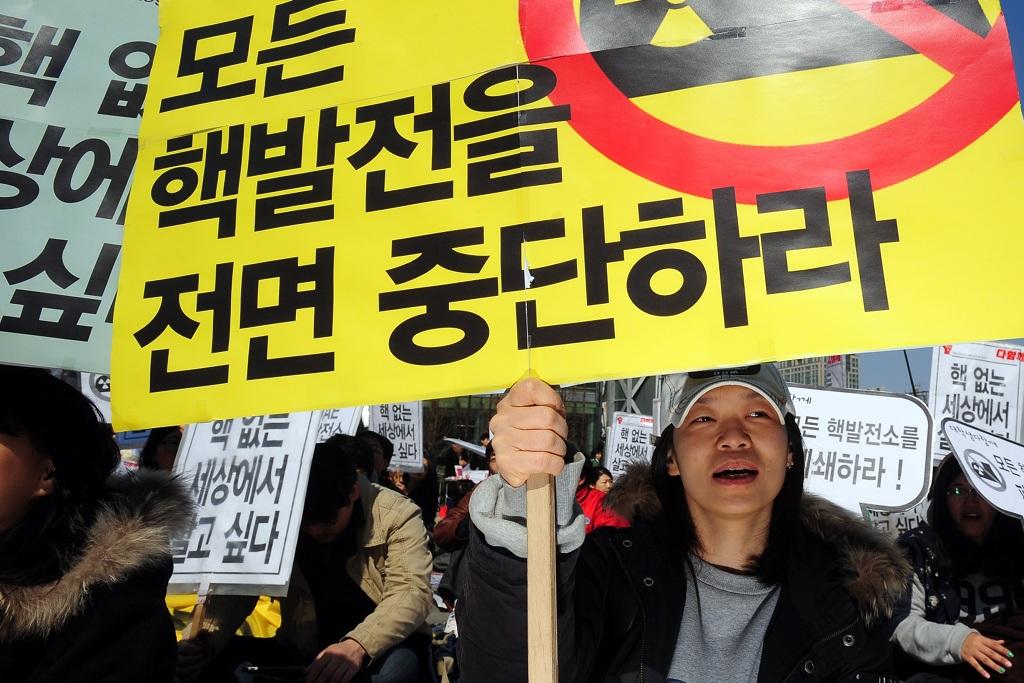North Korea makes another nuclear blackmail effort
An editorial in the Wall Street Journal argues that North Korea’s latest nuclear weapons announcement is an attempt to extort more cash from South Korea, the United States and other nations. The international community should not pay North Korea but instead unite and isolate the regime.
QUOTE: The purpose is transparently to frighten the West into concluding that there is no alternative to paying off Pyongyang, lest it sell a bomb to al Qaeda or Iran.
How Britain avoided Ireland’s crisis
Commentator Mary Ann Sieghart writes in London’s Independent that Britain would have been at risk of falling to the same fate as Ireland if it had joined the euro. Ireland does not have the mechanisms it now needs to fix its economic problems on its own.
QUOTE: Had we been in the euro, the imbalance would have been far, far worse. And our banks now – like the Irish – would be struggling even harder to cope with the toxic debts they had accumulated.
The US must enact budget changes that redefine its government
Columnist Robert Samuelson writes in the Washington Post that the United States needs momentous budget changes that redefine the government. American politicians have ignored the problem of the government promising more than it can deliver.
QUOTE: Wealthier retirees should pay more for Medicare. Somehow we need to control health spending. We should eliminate programs that are ineffective or serve narrow interests
North Korea’s provocations aimed at helping its ‘Boy General’
Author Bradley K. Martin writes in GlobalPost that North Korea has been more aggressive recently because it wants to build accomplishments for Kim Jong-il’s successor, Kim Jong-un.
QUOTE: The succession process is troubled, and the boy general badly needs something that will help him earn the respect of the military, whose interests are given official priority behind only those of the leader himself.
US influence will recover, but not completely
Columnist Clive Crook questions in the Financial Times how long it will take for the United States to regain its power and influence. He argues that the Obama administration will be able to bring back the United States, but the country will not regain its original influence.
QUOTE: US power is unlikely to recover all the way. Challenging the US presumption of leadership will prove habit-forming, and evolving institutions of global governance, reshaped under the current dispensation of global power, will surely help that process along.
Watch out, Portugal is next
Ambrose Evans-Pritchard writes in London’s Daily Telegraph that Portugal is likely to also face economic disaster like Greece and Ireland have. It will have a current account deficit of 10.3 percent of GDP this year and will have to be bailed out.
QUOTE: Portuguese banks have been well-behaved. There is no property bubble. But as the IMF points out in its Article IV report, the banks have a "heavy reliance" on external funding, equal to 40pc of total assets.
The international community can force Myanmar’s tyrants to withdraw
Amartya Sen, who received the 1998 Nobel Prize in economics, writes in the Financial Times that there are immediate measures the international community can take to bring about reform in Myanmar. Sanctions should be reshaped to better target the generals, and neighboring countries should push for change.
QUOTE: With determination and wisdom, the tyrants can be made to withdraw, and Burma’s people may be free once more.
Anglo-American relations shift under Obama and Cameron
Columnist Roger Cohen writes in the New York Times that the Anglo-American relationship is shifting as British Prime Minister David Cameron pushes the country’s interests more directly. For example, the UK has been stronger on human rights in Israel, China and Afghanistan than America.
QUOTE: Cameron’s original bet is that the frank pursuit of British interests won’t alienate — and may even help — a weakened Obama.
Leave North Korea to its neighbors
Doug Bandow, a senior fellow at the Cato Institute, writes in the Korea Times that the Unites States’ efforts with North Korea have failed, and it should now ignore the country. It should leave North Korea in the hands of its neighbors, who have the most at stake in bringing about peace and stability in the region.
QUOTE: Nothing is likely to change in the near future. Washington should step back and leave the issue to the North’s neighbors.
The era of treaties has passed
James P. Rubin, a former US assistant secretary of state for public affairs, writes in the New York Times that the United States can meet its objectives on arms control through domestic legislation better than through international treaties.
QUOTE: The freer flow of information makes American and Russian military programs and arms negotiations far more transparent, rendering formal treaties less important.
